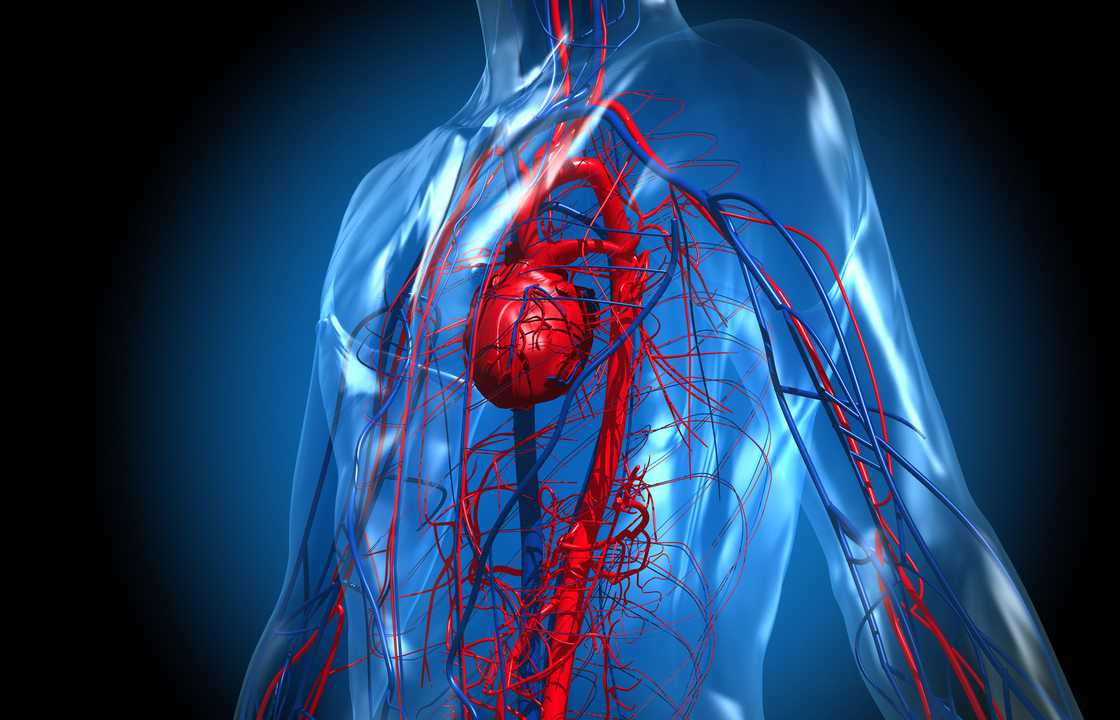Life is packed with surprises, from how human bodies function to the mind-boggling mysteries of the universe. Whether it is the bizarre habits of animals or the extraordinary processes of the human mind, these facts about life are bound to spark your curiosity.

Source: Getty Images
TABLE OF CONTENTS
Life’s complexities are more than amazing—they remind humanity of the power of science to explain the inexplicable. Each of these facts about life on Earth uncovers new insights that will leave you wanting more.
Deep facts about life
Life is full of mysteries that leave individuals in awe of the world around them. From the tiniest cells in human bodies to the vast expanse of the universe, deep facts about life reveal how interconnected everything truly is. Dive into these profound facts about life.
1. The brain consumes around 20% of the body’s total energy
Despite only accounting for about 2% of body weight, the brain uses around 20% of the body’s energy. This energy is necessary for maintaining its complex functions, including thought, memory, and emotion.
2. Earth’s rotation is changing speeds
The Earth’s rotation is gradually slowing due to gravitational interactions with the Moon. This means that days are getting longer by approximately 1.7 milliseconds per century.
3. Human teeth are the only body part that can’t self-heal
Unlike bones, which can repair after injury, teeth cannot regenerate because their enamel is not living tissue. Once damaged, the enamel requires dental intervention to restore it.
4. Iron deficiency can make you crave ice
This condition, known as pagophagia, is a form of pica, a craving for non-nutritive substances. People with iron deficiency may crave ice due to their body’s attempt to soothe oral inflammation caused by anaemia.
5. The human brain can store 2.5 million GB of data
The brain has a staggering memory capacity, estimated to store around 2.5 million gigabytes of data distributed across billions of neurons and synapses. Brain Finds Problems
6. Brain finds problems
The human brain is wired to identify and focus on problems for survival. This tendency can lead to overthinking and increased stress, as the brain constantly seeks issues to resolve.
7. During sleep paralysis, the brain is always awake
During sleep paralysis, the brain wakes while the body remains immobilised in a REM sleep state. This can lead to vivid hallucinations, often causing feelings of fear or anxiety.
8. Two-thirds of people have experienced déjà vu
Déjà vu is a sensation of having already experienced a current situation. It is believed to be caused by a delay in processing sensory information, making it seem like a memory.
9. The human brain burns about 400-500 calories daily
The brain’s high energy demand means it uses up to 500 calories daily, even at rest. This energy consumption supports cognitive functions, neural activity, and maintenance.
Amazing facts about life
Life is a collection of unique experiences that go unnoticed in daily routines. These amazing facts about life will open your eyes to the incredible science behind everyday phenomena.
1. The circulatory system is more than 60,000 miles long

Source: Getty Images
The human circulatory system, consisting of blood vessels, veins, and arteries, is over 60,000 miles long. This vast network enables efficient transportation of blood throughout the body.
2. Bees can fly higher than Mount Everest
Bees have been recorded flying over 29,000 feet, higher than Mount Everest. Their ability to adapt to low-oxygen environments makes this feat possible.
3. Jupiter and Saturn “rain diamond”
Extreme temperature and pressure conditions on Jupiter and Saturn cause diamonds to melt easily. This is what is referred to as “diamond rain.” These diamonds likely fall like rain deep within their gas layers.
4. Snakes smell with their tongue
Snakes use their forked tongues to “taste” the air, gathering scent particles and bringing them to their vomeronasal organ. This allows them to detect prey or danger in their surroundings.
5. A sneeze can reach speeds up to 100 miles per hour
When you sneeze, your body expels air forcefully, propelling droplets at high speeds. This fast movement is meant to clear irritants from your nasal passages.
6. Cats can’t taste anything sweet
Unlike humans and most other animals, all cats lack taste receptors for sweetness. This is due to a genetic mutation that renders their sweet-taste receptor, the Tas1r2 gene, non-functional.
7. Dogs sweat through their paws
Dogs have sweat glands primarily located in their paw pads. While they mainly cool by panting, sweating through their paws helps man’s best friend regulate body temperature.
Unbelievable but true facts
Sometimes, life can present facts that seem too incredible to be real. These revelations challenge human understanding of reality, from bizarre biological processes to mind-bending natural occurrences.
1. Bananas glow blue under black lights
Bananas emit a blue glow when exposed to UV light due to the breakdown of chlorophyll as they ripen. This fluorescence is invisible to the naked eye but detectable with black light.
2. Space has no sounds
Sound cannot travel in the vacuum of space because there are no air molecules to transmit sound waves. Astronauts rely on radio waves to communicate in space.
3. The hottest chilli pepper measures over 2.2 million SHU

Source: Getty Images
The Carolina Reaper is the world’s hottest chilli pepper, with a heat exceeding 2.2 million Scoville units. It is over 300 times hotter than a jalapeño pepper.
4. You can die laughing
Though extremely rare, death by laughter can occur due to heart failure or asphyxiation. Excessive laughing strains the body, especially if pre-existing conditions exist.
5. Nails don’t continue to grow after death
Contrary to popular belief, nails do not keep growing after death. The skin recedes as the body dehydrates, giving the illusion that the nails have grown.
6. 10% of the world’s population is left-handed
Approximately 10% of people are left-handed, with this trait being influenced by genetic and environmental factors. Left-handedness has been associated with creativity and divergent thinking.
7. Swallowing and breathing cannot happen simultaneously
Humans cannot swallow and breathe at the same time because the throat’s anatomy involves shared pathways for air and food. The epiglottis prevents food from entering the lungs when swallowing.
8. About 80% of taste perception is influenced by smell
Taste is closely linked to smell, as the olfactory senses detect flavour compounds in food. This is why food often seems tasteless when our noses are blocked.
25. The longest breath-hold is 24 minutes, 37 seconds
This record, achieved by freediver Budimir Šobat, was set in 2021. It required intense physical and mental preparation, including hyperventilation techniques and oxygen storage.
9. Water is not wet
Water is not wet itself; instead, it makes other materials wet when it comes into contact with them. Wetness is the sensation we experience when a liquid adheres to a solid surface.
10. Noses can detect 1 trillion scents
The olfactory system is susceptible, enabling the nose to detect and differentiate approximately 1 trillion unique smells. This vast capability surpasses what was previously thought to be only 10,000 scents.
11. Yawning is contagious

Source: Getty Images
Yawning triggers an automatic response in the brain that makes others more likely to yawn when they see or hear someone else doing it. This is thought to be linked to empathy and social bonding.
Beautiful facts about life
The natural world is full of beautiful facts about life that inspire awe and wonder. These fascinating details remind you of the harmony and complexity of existence. Explore the elegance of life through these inspiring truths.
1. Wearing a tie can reduce blood flow to the brain by 7.5%
For those who love a formal outfit, an overly tight necktie can compress the veins and arteries in the neck, reducing blood flow to the brain. This slight restriction might affect cognitive function and increase discomfort.
2. A person blinks around 15-20 times per minute
Blinking helps lubricate and protect the eyes by spreading tears evenly. People blink 15-20 times per minute, about 1,200 times an hour.
3. Nose and ears become bigger because of gravity
As we age, the cartilage in our nose and ears continues to grow, and gravity pulls these tissues downward. This gives the appearance of bigger noses and ears over time.
4. Learning a second language enhances cognitive abilities
Bilingualism strengthens the brain’s executive functions, such as attention, problem-solving, and memory. It may also delay the onset of cognitive decline in older adults.
5. Antarctica and Mars have almost the same environment
Antarctica’s extreme cold, dry conditions, and high UV radiation exposure resemble the surface of Mars. Both environments lack the resources for human life without technological assistance.
6. Your brain is eating itself
Through the process of phagocytosis performed by the microglia, the cells in the human brain eat neurons’ “nerve cells” or the connections between neurons’ “synapses.” This process saves you grey matter and does not make it harmful.
7. Around 5% of adults engage in sleep-talking
Sleep-talking, or somniloquy, affects about 5% of adults and often occurs during non-REM sleep. It’s typically harmless but can sometimes be linked to stress, sleep deprivation, or sleep disorders.
8. Laughter reduces stress
Laughter triggers the release of endorphins, the body’s natural feel-good chemicals. It also reduces stress hormones like cortisol, helping improve overall mood and relaxation.
9. Babies don’t have kneecaps
Babies are born with cartilage in their knees that slowly ossifies into bone. The hard, bony kneecaps don’t fully form until ages 2 and 6.
10. Eyes and brains don’t shut off in the dark
Even in total darkness, the eyes continue sending information to the brain, which remains active. This allows the brain to maintain awareness and adapt to environmental changes.
11. Fingernails grow faster than toenails
Fingernails tend to grow about 3.5 millimetres per month, which is faster than toenails. Increased usage and blood flow to the hands contribute to this growth difference.
12. Horses and cows usually sleep standing up

Source: Getty Images
Horses and cows can sleep while standing due to a locking mechanism in their legs. This allows them to stay alert to predators while resting.
What are deep facts about life?
Deep facts about life explore complex and thought-provoking aspects of existence. They often challenge conventional understanding, provoke introspection, and offer insights into the fundamental workings of life and the world around us.
Are facts scientifically proven?
In science, an observation that has been repeatedly confirmed and, for all practical purposes, is accepted as “true”. However, truth in science is never the final, and what is accepted as a fact may be modified or even discarded later.
These fascinating facts about life reveal how complex, strange, and awe-inspiring the world can be. Whether it is the depths of human biology or the mysteries of the universe, each fact uncovers a unique perspective.
Legit.ng recently published fun facts about Mexico. Many people prefer visiting Mexico for their exceptional food, great museums, mild climate, and excellent day trips.
Mexico is in southern North America and the third largest country in Latin America. It borders the United States to the north and Guatemala and Belize to the southeast. Read the article to discover some exciting facts and unique aspects that make Mexico a remarkable nation.
Source: Legit.ng













